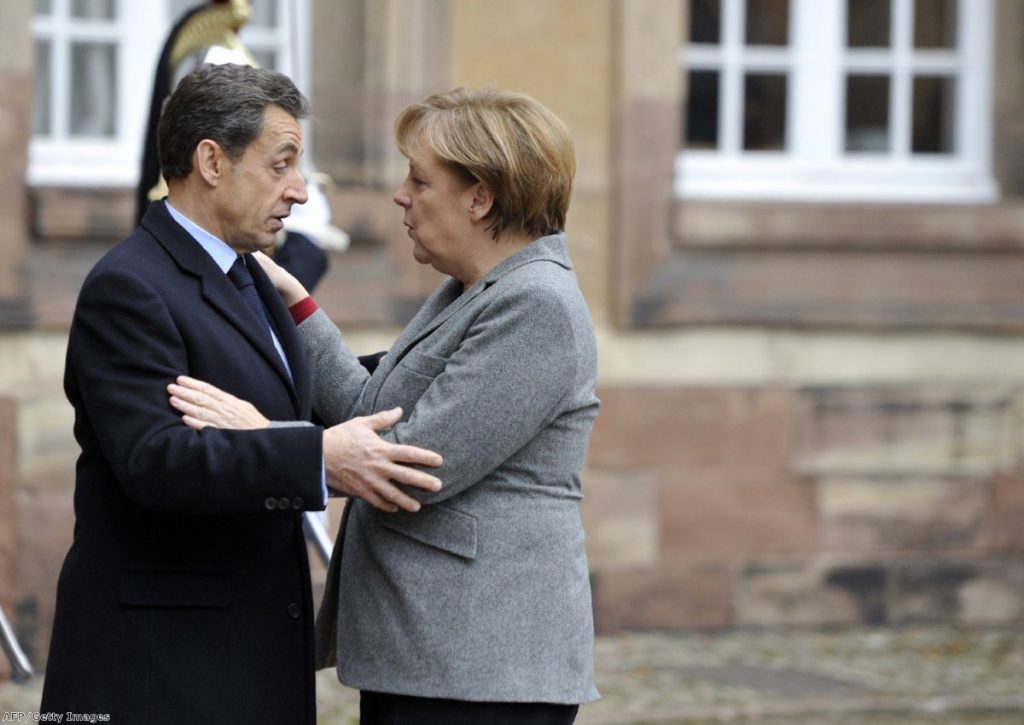Downing St dismisses referendum speculation
By Alex Stevenson Follow @alex__stevenson
British voters will not be given a referendum on Europe because of treaty changes triggered by the eurozone crisis, No 10 has said.
The prime minister's spokesperson said a "significant transfer of power from the UK to the EU" was not being discussed in this week's talks on how to resolve the eurozone crisis, so a referendum was not required.
The coalition government has legislated to impose a 'referendum lock' on any alterations to the EU, giving the British people a say in the event of any treaty change.


But in a move designed to fend off eurosceptic agitation in favour of a referendum Downing Street made clear that the adjustments currently being discussed did not constitute a major shift.
"That's not what's set out in the Act," Mr Cameron's spokesperson added.
"The position is set out very clearly. What the Act says is where there is a transfer of powers from London to Brussels, that should trigger a referendum… we have a coalition government and we have a government policy."
French president Nicolas Sarkozy and German chancellor Angela Merkel met today to prepare proposals imposing "automatic sanctions" on any of the 17 eurozone countries which breach a new debt ceiling.
Each country will have to adopt a "constitutional concept" that the national budget be balanced according to European rules.
A new system of voting will also be adopted, ending the veto which currently dominates EU decision-making. Instead a 'converted qualified majority' will be set at 85%.
"We are very resolved if there are any difficulties. If anybody doesn't want to join us, then we need to think again," Ms Merkel told journalists in a joint press conference with Mr Sarkozy.
"We cannot be a continent with a unified currency that when we finally notice that when we have to change the legal framework we can't do that."
The changes will be discussed at the two-day European leaders' summit coming up on Thursday and Friday this week.
Ministers are under intense pressure to use the present crisis to accelerate their efforts to repatriate powers from Brussels back to London.
An area of particular focus for eurosceptics is financial services, with the City under pressure from proposals to introduce a financial transactions tax.
Thinktank Open Europe has argued in a report out today that an "emergency brake" needs to be applied to financial laws, which it says are more likely to restrict financial activity than encourage trade.
"While the eurozone crisis should not be used for political point scoring, given financial services' importance to UK growth and tax revenues, and the benefits to Europe of a vibrant financial market, David Cameron would be right to use EU Treaty changes to ask for an emergency brake to halt regulation that could harm the financial sector and wider economy," director Mats Persson said.
"Clearly, financial markets need to be properly regulated but Cameron must seek safeguards that protect the City of London from growth-destroying measures, enabling it to compete in Europe and, increasingly, across the globe."
It argued that Britain was increasingly losing influence over the shape and thrust of EU financial law – and suggests Mr Cameron should call for the adoption of a 'single market protocol' committing the EU to growth, trade and proportional financial rules.












